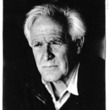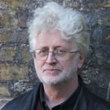Blood of Victory
(Libby/OverDrive eAudiobook)
Author
Contributors
Published
Simon & Schuster Audio , 2011.
Status
Checked Out
Available Platforms
Libby/OverDrive
Titles may be read via Libby/OverDrive. Libby/OverDrive is a free app that allows users to borrow and read digital media from their local library, including ebooks, audiobooks, and magazines. Users can access Libby/OverDrive through the Libby/OverDrive app or online. The app is available for Android and iOS devices.
Description
1. The title Blood of Victory comes from a speech given by a French senator at a conference on oil in 1918: “Oil, the blood of the earth, has become, in time of war, the blood of victory.” Describe the role that oil plays in Furst’s novel. How would you say the relationship between oil and war has changed over time? Given America’s relationship with the Middle East since World War II, to what extent would you say oil is now the cause of war? 2. During Serebin’s meeting with “Bastien” (Count Polanyi), Bastien describes the moral ambiguity of espionage in these terms: “People who trust you will get hurt. Is a dead Hitler worth it?” Consider Serebin’s response to this question. What moral calculus must he perform to answer this sort of question? How would you respond to the same question? 3. At lunch at the Hotel Helvetia, Kostyka proclaims, “For every man there are three cities. The city of his birth, the city he loves, and the city where he must live.” Discuss this themes of alienation and exile as they appear in Blood of Victory . Does Kostyka’s pronouncement hold true for the characters in the novel? 4. In Blood of Victory , I. A. Serebin finds himself facing the prospect of his fifth war. Why doesn’t Serebin want to fight again? Why does he choose, ultimately, to fight? In the end, does it matter that he has? 5. In an unguarded moment in the Tic Tac Club, Marie-Galante is shown to be a French patriot. Would you say Serebin is a patriot? If so, for which nation? Is Polanyi? Is Kostyka? 6. Critics praise Furst’s ability to re-create the atmosphere of World War II—era Europe. What elements of description make the setting come alive? How can you account for the fact that the settings seem authentic even though you probably have no firsthand knowledge of the times and places he writes about? 7. Furst’s novels have been described as “historical novels,” and as “spy novels.” He calls them “historical spy novels.” Some critics have insisted that they are, simply, novels. How does his work compare with other spy novels you’ve read? What does he do that is the same? Different? If you owned a bookstore, in what section would you display his books? 8. Furst is often praised for his minor characters, which have been described as “sketched out in a few strokes.” Do you have a favorite in the book? Characters in his books often take part in the action for a few pages and then disappear. What do you think becomes of them? How do you know? 9. At the end of an Alan Furst novel, the hero is always still alive. What becomes of Furst’s heroes? Will they survive the war? Does Furst know what becomes of them? Would it be better if they were somewhere safe and sound, to live out the end of the war in comfort? If not, why not? 10. Love affairs are always prominent in Furst’s novels, and “love in a time of war” is a recurring theme. Do you think these affairs might last, and lead to marriage and domesticity?
More Details
Format
eAudiobook
Edition
Unabridged
Street Date
01/04/2011
Language
English
ISBN
9781442342514
Also in this Series
Checking series information...
Reviews from GoodReads
Loading GoodReads Reviews.
Citations
APA Citation, 7th Edition (style guide)
Furst, A., & Guidall, G. (2011). Blood of Victory (Unabridged). Simon & Schuster Audio.
Chicago / Turabian - Author Date Citation, 17th Edition (style guide)Furst, Alan and George Guidall. 2011. Blood of Victory. Simon & Schuster Audio.
Chicago / Turabian - Humanities (Notes and Bibliography) Citation, 17th Edition (style guide)Furst, Alan and George Guidall. Blood of Victory Simon & Schuster Audio, 2011.
Harvard Citation (style guide)Furst, A. and Guidall, G. (2011). Blood of victory. Unabridged Simon & Schuster Audio.
MLA Citation, 9th Edition (style guide)Furst, Alan, and George Guidall. Blood of Victory Unabridged, Simon & Schuster Audio, 2011.
Note! Citations contain only title, author, edition, publisher, and year published. Citations should be used as a guideline and should be double checked for accuracy. Citation formats are based on standards as of August 2021.
Copy Details
| Collection | Owned | Available | Number of Holds |
|---|---|---|---|
| Libby | 1 | 0 | 0 |
Staff View
Loading Staff View.



















































